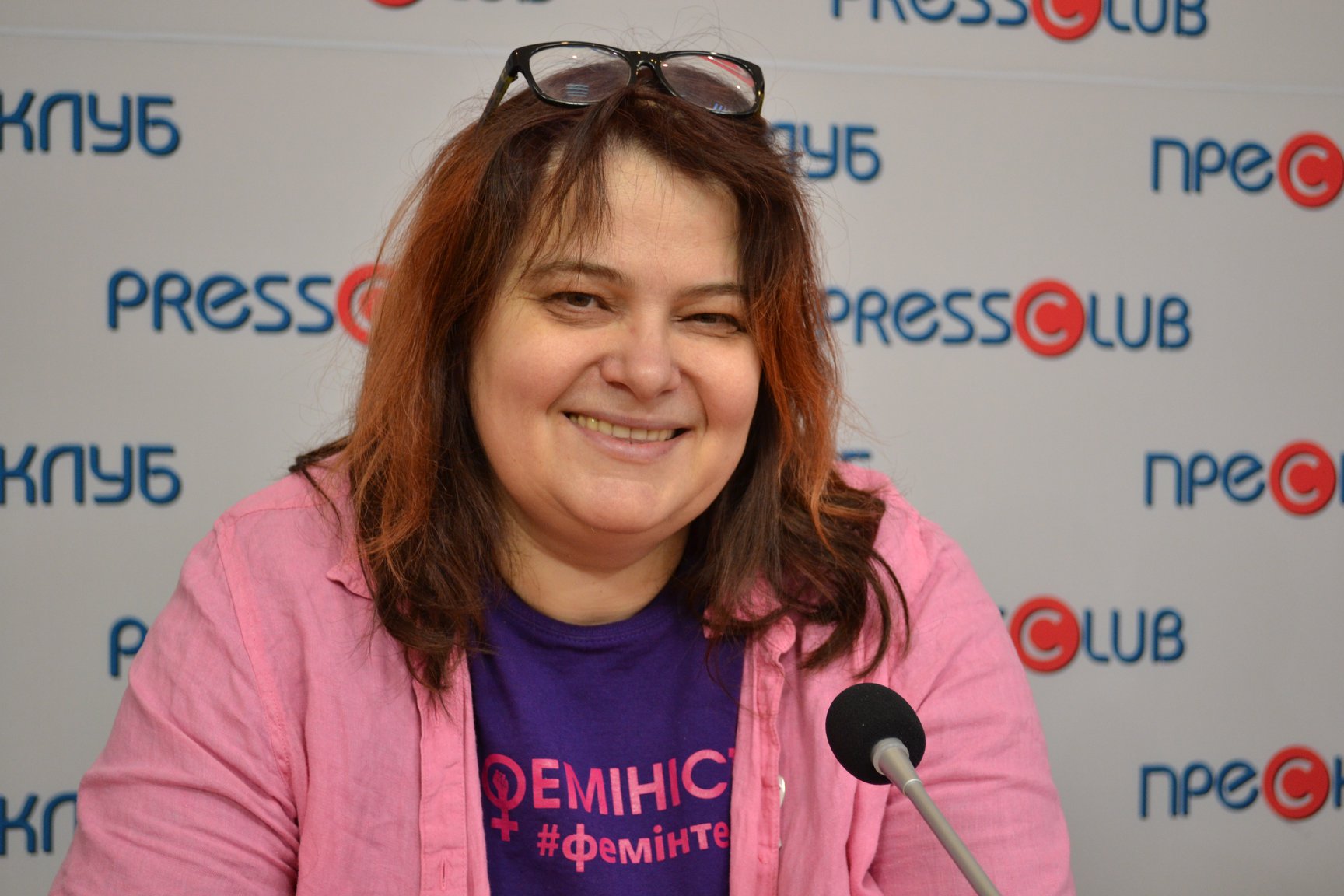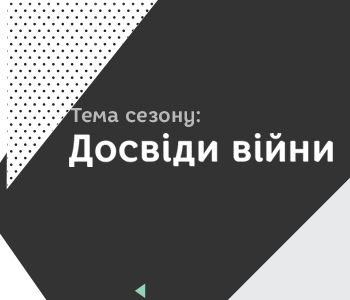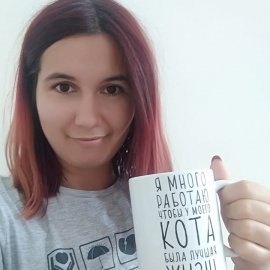I started writing this a few weeks into quarantine, after I had come across a few texts about a feminist view on the pandemic. The texts addressed the impact of quarantine on women, called for advocacy, and invited the reader to revisit the discourse and concepts on which our societies are based, positioning quarantine as an opportunity for radical transformation. It was an invitation to take into account the needs of all people, including women, in decisions-making; to make visible and give value to unpaid work, most of which is done by women; to transition from a “profit-driven economy” to a “care economy,” or an economic system in which caring for people becomes a key priority.
It is care that has become a key element in maintaining security in our communities and societies: childcare, motherhood, caring for the elderly, caring for the sick, activism - all of these require a long time, but this work is excluded from the “real” economy because it supposedly contradicts the economic principle of efficiency and profit increase. From the very beginning of quarantine, feminist activists have begun to talk more about the possibility of transformation and transition to a new society in which care becomes a visible and important part of life. Such a transition requires a paradigm shift, the ability to “make the invisible visible”, and to work together to find real economic solutions. I will talk more about the latter at the end of the article. To begin with, I will try to analyze the key challenges of quarantine for women and how women's and feminist organizations have responded to them.
As I was working on the text, I collected articles that came to my attention, as well as statements and calls to action from feminist organizations. I also spoke with five activists working in different regions of Ukraine on the prevention of gender-based and domestic violence, the rights of LBTI women, supporting in the conflict-affected Donbas region, rights of people with disabilities, and a human rights activist in Kyiv who focuses on monitoring of rights’ violations and advocacy. Our conversation focused on three issues:
- How has quarantine and the pandemic affected the communities you work with?
- What impact does quarantine have on you as activists and human rights defenders?
- What recommendations to the government and / or international organizations do you consider important to voice now?
Below I will try to structure the results of our conversations and my observations. This article is not a thorough analysis with statistics - for this I will refer to specific research. I seek to analyze key trends and highlights, to offer space for reflection on "What does quarantine mean to us, feminists?" and “Where do we go next?”. A space that I myself need and lack.
How has quarantine affected women?
Most of us (women) have probably guessed that quarantine and the pandemic have had a disproportionate effect on women. It is another question whether people living with other experiences are aware of this. Making women's experiences visible, talking about them and emphasizing how they exacerbate inequality is crucial, especially now. Most women's and peacekeeping organizations also say that inequality multiplies during crises and wars. However, there is not always reliable data to support this.
International organizations emphasize that the response to the previous global epidemic (Ebola virus) was gender blind in the analysis of the consequences of this crisis for women and men. This time, the feminist community around the world and in Ukraine has been emphasizing the importance of collecting and analyzing data from the beginning of the quarantine. Globally, this analysis has led to the creation of the #FeministCovidResponse resource. This site contains key principles of the feminist response to the pandemic, advocacy points, as well as analytical data from around the world.
In Ukraine, some organizations have also initiated their own research. In March, the UN women in Ukraine analyzed the needs and risks of women during quarantine, with a special focus on the risks for women representing vulnerable groups and experiencing multiple discrimination (Roma, IDP women, veterans, women with disabilities and others). The Zmina Center has launched a research and campaign #WomenAgainstthePandemic.
The rapid response of civil society organizations and international organizations to the pandemic through data analysis, a clear understanding that we must look at this crisis through gender glasses to prevent discrimination - was an important step taken by women's and feminist organizations, because advocating for change is much easier, when we have evidence and data.
Among the key challenges of women during quarantine, activists highlight the following:
In many families, these are women who are once again responsible for caring for children, teaching and managing households.
Despite the fact that the whole family is at home, surveys say that childcare, education, and housework are mostly done by women. Blogger and activist Nastya Melnychenko recently wrote a blog about this, and I have personally heard many similar stories: when a mother who works from home becomes a teacher, a children's animator, and a chef at the same time, without leaving her job responsibilities. In a conversation with one activist, I heard a powerful quote from her colleague, who works from home: "I have two children at home: my husband and my son, and I don't know which of them is older."

Image Source
This is the result of expectations of relatives, but many women also consider it "their own work". This situation affects not only the emotional state of women, but also their ability to work and perform effectively. For example, recent trends in academia suggest that women have begun to work less intensively on their research with the beginning of quarantine, while men's productivity has almost doubled. Hmm, I wonder why?
In addition to care work, most women take on emotional work during quarantine.
Emotional work is a relatively new concept, but it is becoming more commonly discussed. It refers to the effort of caring of the emotional well-being of others, the ability to support them, listen, comfort them. With the onset of quarantine, people's anxiety due to uncertainty has increased, and it is women who take on the task of supporting the emotional balance of loved ones. For those whose loved ones are in a crisis situation and out of reach, it is even harder emotionally. For example, many internally displaced women report that their anxiety includes thoughts about relatives and friends living at the temporarily uncontrolled territories: in the absence of accurate data and information on the pandemic, their anxiety increases. This can lead to the worsening of women's mental health.
The economic and social consequences of quarantine have a disproportionate impact on women.
We will feel the economic consequences of the crisis for much longer than the quarantine itself. However, this crisis is already affecting women unevenly, and will continue to affect them. Women make up the majority of small and medium-sized business owners who have suffered the most from quarantine. Official statistics from the State Employment Center also show that during one and a half months of quarantine, from March 12 to April 30 87.5 thousand women received unemployment status, which is 52% more than in the same period last year. The human rights center Zmina has written about it. But this is only official data. From the beginning of the quarantine, activists have been receiving information about frequent cases of women being fired or forced to take unpaid leave, including women in the public sector (health care, education, social services). Women remain vulnerable, but at the same time are afraid to speak out about violations of their rights.
“We receive information about mass violations of labor rights: people are asked to take unpaid leave, it is not clear what is happening in hospitals. What can we do as feminists now? Give them the phone number of a lawyer? This directly affects their lives, their income. They will not call and talk about it, they are afraid of being fired, and then they will not be hired for another job. These women, they are many, and they could make a revolution in their field of work, but they need to feel supported, for that we need to work together.”
Oksana Pokalchuk, Director of Amnesty International in Ukraine
Women make up about 80% of health care workers, and the issue of protecting their labor rights and basic safety in the face of constant contact with the infection is more urgent than ever.
Women who face multiple discrimination feel the impact of the crisis even more.
The common phrase that "the virus does not discriminate" can be continued "…but the system does". Women who experience discrimination on multiple grounds are more vulnerable in the result of the pandemic.
For example, according to activists, Roma women have limited access to information about the coronavirus, as well as access to basic hygiene products. Some communities have difficulty teaching children at home because they do not speak Ukrainian fluently and the lessons and materials for homework are in a language that is not accessible to them. In addition, the Roma community is once again experiencing increased hostility and physical attacks: in April, the mayor of Ivano-Frankivsk publicly called for "the removal of all Roma people from the city," to which local police responded with criminal proceedings.
Women with disabilities report that quarantine has restricted their mobility for obvious reasons.
"Since the beginning of quarantine, I have heard the statement “now, everyone will learn how people with disabilities live, they have always been at home and unable to move freely. In fact, I do not support this thesis, because it reinforces the stereotype that all people with disabilities really do stay at home, but many among us are quite active and move independently, leading an active lifestyle. This quarantine, however, has affected me in an unexpected way. I don't go outside at all, for very simple reasons: when I go down (on crutches), I have to touch everything. To just go outside, I need to touch all the bars and door knobs, which puts me at even greater risk, as well as my loved ones, so now I'm taking walks on the balcony. And imagine a person in a wheelchair who has to touch the wheels constantly. Well, you get the point.”
Victoria, a woman-activist with disability
There is an increase in domestic violence worldwide, including in Ukraine.
 Marta Chumalo of the Women's Perspectives Center told me that in the context of quarantine, courts are postponing cases of domestic violence, while the risk of violence increases because women return to their former partners due to job loss or economic vulnerability. The organization continues to provide telephone consultations, but the format of these services has changes: now it is impossible to invite a woman to the office and talk to her confidentially, she is in the same space with the offender and can not share information openly. Many women experience increased anxiety because they have less control over their lives and need more support from the outside. Thus, the number of legal consultations has increased.
Marta Chumalo of the Women's Perspectives Center told me that in the context of quarantine, courts are postponing cases of domestic violence, while the risk of violence increases because women return to their former partners due to job loss or economic vulnerability. The organization continues to provide telephone consultations, but the format of these services has changes: now it is impossible to invite a woman to the office and talk to her confidentially, she is in the same space with the offender and can not share information openly. Many women experience increased anxiety because they have less control over their lives and need more support from the outside. Thus, the number of legal consultations has increased.
The situation is deteriorating in the region of armed conflict, where women have limited access to justice and protection from domestic violence, because the courts are at a great distance from each other. According to Kateryna Khaneva, “the courts have ruled that civil disputes are not a priority for consideration during the quarantine period; and the police focus on monitoring the quarantine, while they are reluctant to respond to calls about domestic violence. ”
Some governments are using the crisis to reduce the services available to women. This is especially true for access to sexual and reproductive health services.
For example, in Texas and Ohio, abortions have been added to the list of "non-urgent" medical services that are proposed to be postponed until a pandemic. In Poland, the government is trying to limit the already narrow right of women to abortion, and in Ukraine the MP proposes to introduce criminal liability for "promoting the refusal to have children."
How women’s rights organizations adapt to new working conditions
Although crises have a stronger impact on women, women are also the first to respond to the needs of their communities, especially women's and feminist organizations. Here's how they adapted to the new working conditions:
Challenges of working online
The first challenge for everyone was the restriction to hold events, because for a large number of NGOs this is one of the key formats of work. Education, networking, advocacy - all this work happens at trainings, round tables, conferences. In addition, organizations that provide counseling services to women victims of violence are no longer able to invite a woman to the office for a confidential conversation and are forced to communicate with her only by telephone.
New formats create new opportunities: online events require much less resources, which allows to attract participants from a much wider geography, and invite international experts without having to raise funds for travel expenses. For some, working online has really been a period of networking and reaching new audiences. Even meetings with local and regional authorities, as well as round tables at the national level, transferred to online space.
However, it is important to remember that not all women and girls have access to technology or know how to use it. Not all locations have quality internet. This is especially true for rural areas. Therefore, this format of work risks excluding the most vulnerable. In addition, the fatigue of online formats has already started to emerge, explained by the fact that our psyche must process much more information in this format than during a face-to-face meeting.
Search for meaning and reassessment of approaches
The online format has greatly changed the format of engaging with people. The first couple of weeks the online activity was high, then it quickly dropped. Now organizations are asking themselves: how can we keep in touch with our target audience? How can we understand their current needs?
"Social networks are full of offers, and at the same time the general situation is that each of us thinks about work life balance in the first place. People's interest is more focused on narrowing consumption, including information intake. Our work is based on the fact that if someone is in trouble, we offer help. Now there is less of a demand, activists are less engaged and some are focused on self-preservation."
Anna Sharyhina, Sphere NGO.
Needs analysis and finding ways to keep in touch
CSOs mostly build their work based on the needs of communities. Now these needs have changed dramatically, so organizations are investing resources in collecting data on the state of affairs and current needs of their target audience: online surveys, telephone conversations, analysis of statistics of online events - all this becomes information about what and where women spend their time and resources.
New topics and new target audiences
The quarantine has also identified areas of violation of women's rights that have not received sufficient attention, such as labor rights, access to social and medical services, and the unpaid care work performed by women. Current monitoring shows a massive violation of the rights of women working in health sector, services and trade - those who put themselves at risk primarily through contact with large numbers of people. It turns out that mobilizing these groups to defend their rights is not so easy, due to low awareness of their own rights, due to lack of previous experience and activism. Many organizations now understand the need to reach out to new audiences so that support and assistance is available to women who are most vulnerable during quarantine and are more discriminated on the systemic level.
Analysis and advocacy
Organizations working with the government to advocate for changes to legislation have expressed concern that human rights, including women's rights, will again be "not on the agenda" during the pandemic. The risks of limiting rights using the "security" arguments are not unfounded. We have already seen cases where women who suffer from domestic violence are not allowed to access shelters without health certificates, and the police responds much more quickly to quarantine violations than to calls for domestic violence cases. We also see that the government's response to the crisis is not gender-sensitive and does not include consultations with women's NGOs. We are already observing consequences of this. One of the major decisions on lifting the quarantine measures in many was very illustrative, because it allowed for the opening of parks, shops and offices of some specialists, but did not allow the opening of kindergartens and child care facilities. Don't government officials think that women with children are among those who will return to work? And if so, what are these women supposed to do - take their children to work: to their hairdressing salons, dental offices and restaurants?
How the activists themselves have been affected
Emotional needs of the team, care for team spirit
Not all activists have openly talked to me about this. However, in our field of work we are used to being "strong and independent" and we are only learning to integrate concerns for our emotional well-being into our work. However, the pandemic has added background stress to everyone, and the possible psychological consequences of the stress we experience as a global community have begun to be discussed openly. As a result, organizations are creating opportunities for psychological support for the communities they work with, as well as advocating for systems of mental health support for populations, especially considering the fact that Ukraine has been in a state of war for six years. I would like to add that I very much hope that this culture of self-care, attention to the emotional state and holistic wellbeing will also become an integral part of the activist culture. This is one of the feminist principles that I am actively promoting.
The need to change approaches to work
With the onset of quarantine, our lives have shifted online and everyone has to adapt. The public sector and human rights organizations, however, build most of their work on activities that involve physical assembly of people: training events, campaigns, actions - it is on building trust, long-term relationships and visibility that human rights work is based. And although some of it has been translated into online format, it will not be able to completely replace real meetings and mass actions. Most likely, we will need to be creative in applying the rules of social distancing, hygiene and safety to be able to go offline again.
Analysis of the needs of communities, strategic reorientation
This period of uncertainty is used by many organizations as an opportunity to better analyze the needs of the communities they have worked with and continue to work with - to provide services that meet demands, and to identify areas for work in the longer term. Several activists I spoke with confirmed that they would like to have the opportunity and resources to further re-asses the work of their organization, to explore the impact of their work, and to be able to formulate medium- and long-term plans in the new reality.
To do this, in my opinion, organizations that provide funding to the civil society should also reconsider their approaches to work, because they largely determine which thematic areas, formats of work and activities deserve support. In this context, the activist community is also voicing its requests and recommendations: while urgent support in response to a pandemic is needed, it is just as important now to provide flexible funding to human rights organizations, create opportunities for institutional support, simplify the application procedures and selection processes.
The conversation about changing the models of funding for civil society sector is a separate and large conversation, which, in my observation, is more active in the international community. One resource that helps me critically analyze forms and mechanisms of donor assistance formats and mechanisms is How Matters. Some points I want to leave for reflection: one of the shifts may be the transition from "result-oriented" to the process-based work of NGOs, which will allow organizations to be more flexible. It is important to understand that the work of civil society organizations is measured not only by the number of events held, the people who attended them, but also by the quality of long-term relationships that each organization builds with its target audience. These connections make it possible to mobilize communities for human rights campaigns, to disseminate information, and to involve volunteers. Now, even if offline events are not held, it does not mean that organizations do not work and are not effective, because they keep in touch with their communities in the ways that are available to them. It is important to support this work - now and in the long run. It is also important to look for new performance indicators to measure the results of programs and projects, so that the invisible and daily work of activists also becomes visible.
Conclusions: what's next?
Finally, I want to focus on three key points that can support me, as an activist, and my colleagues in my future work.
● The pandemic has shown the world that the system of living we have created is not sustainable in itself. The economic and political priorities of governments and companies do not reflect the needs of the majority of the population, nor do they ensure the well-being and sustainable development of societies and the planet. Right now is the time to reconsider our priorities if we want to build a different society.
● Militaristic discourse in the context of responding to the pandemic does not contribute to more security, rather it narrows it. Recently, the discourse of war has become increasingly common in the fight against the virus: "we are fighting against the disease", "our doctor are our heroes". “I congratulate every citizen with the discipline they show. They all behave like soldiers in these difficult times. In this strange war we are living in and in which we are fighting now, each and every one of us is a soldier. ” - This quote from the Chief of Staff of the Spanish Defense is given by activist Elena Kuchero. In her blog titled "We are not soldiers" on the website of the Women's International League for Peace and Freedom (WILPF), she goes on to say: “Values that are traditionally associated with the feminine world are undervalued and we resort to the language of war to raise awareness of the greatness of the heroic deed. But […] We are not soldiers, we are citizens. We are doctors, nurses, porters, care givers, greengrocers. Caring neighbors. We are a supportive comment through the window and a 3D printer making respirators at home. We are the applause for supermarket cashiers every day at 8 p.m. None of this is anything but epic. Supporting each other as society, weaving a net that will not let us fall, is no small thing.” It is feminist activists working in the field of peace and security, who can propose an alternative paradigm to the discourse of war, replacing it with the paradigm of "human security" and sustainable peace rooted in gender equality and social justice.

The artist Félix Rodriguez from Madrid painted a series of posters in the style of propaganda during the Spanish Civil War, in order to draw attention to the risks of a pandemic. The posters call for the mobilization and creation of a united front in the fight against the invisible enemy. More posters here.
Care, in a broad sense, is at the root of resilient communities and states. The ability to pay attention to care work, to notice emotional needs, to take care of the basic security of the most vulnerable groups, to provide effective infrastructure and services - this is what creates the basis for security and trust in societies. Some feminist activists are proposing systemic change through the transition to a so-called "care economy." What does it mean? As the coordinator of the Heinrich Böll Foundation's Democracy program in Russia, Nuriya Fatikhova, writes in her article: “First of all, we need to restore the economic value of care. We need to calculate it and see how much professional care affects the real economy. And to really start investing into it. To date, this whole area has been excluded from the big economy.” By the way, these days the Center for Social and Labor Studies has begun analyzing working conditions in the field of preschool education. In only a few days, the research team received more than 5,000 responses to their online survey, which shows how relevant the topic for our society is. It may seem that these issues have emerged only now and come from individual activists. In fact, feminist activists and the international community have been talking for years about the need to shift priorities in the field of labour relations. Last year's UN Committee on the Status of Women (CSW) raised the issue of social infrastructure and investment in care. In 2018, as part of the Decent Work and Care Economy project, the International Labor Organization published a report that thoroughly analyzes the types of unpaid and invisible care work performed by women - much of what this article is about. Maybe right now these reports and recommendations will finally get enough attention and lead to systemic change?
● The feminist paradigm can offer an alternative in this context: based on data analysis, statistics, offering a view of society through the lenses of women's needs and those with less power and resources in society, we can work together to promote the changes we want to see. Some areas of work that my colleagues named include:
– Conducting a deeper analysis of the needs of women - urgent and longer-term, which would help organizations shape their programming.
– Continue advocacy for the rights of vulnerable groups.
– Involve women in decision-making so that decisions and policies are no longer gender-blind.
– Actively consider gender analysis in the provision of public services during and after quarantine.
– Allocate resources to enable organizations to rethink their strategies and approaches, instead of continuing to work in formats that are no longer effective.
– Possibility of institutional support for women's NGOs during and after quarantine.
– Continue to support programs aimed at working directly with women in communities (offline), these communities are a source of information about the needs and risks.
– Changing the discourse: start an informed conversation about the "care economy"; move away from the militarized discourse of "fighting the virus", "heroes" and "war". Shift the discourse towards equality, solidarity, care and human security.
The list goes on, let's create it together!




















